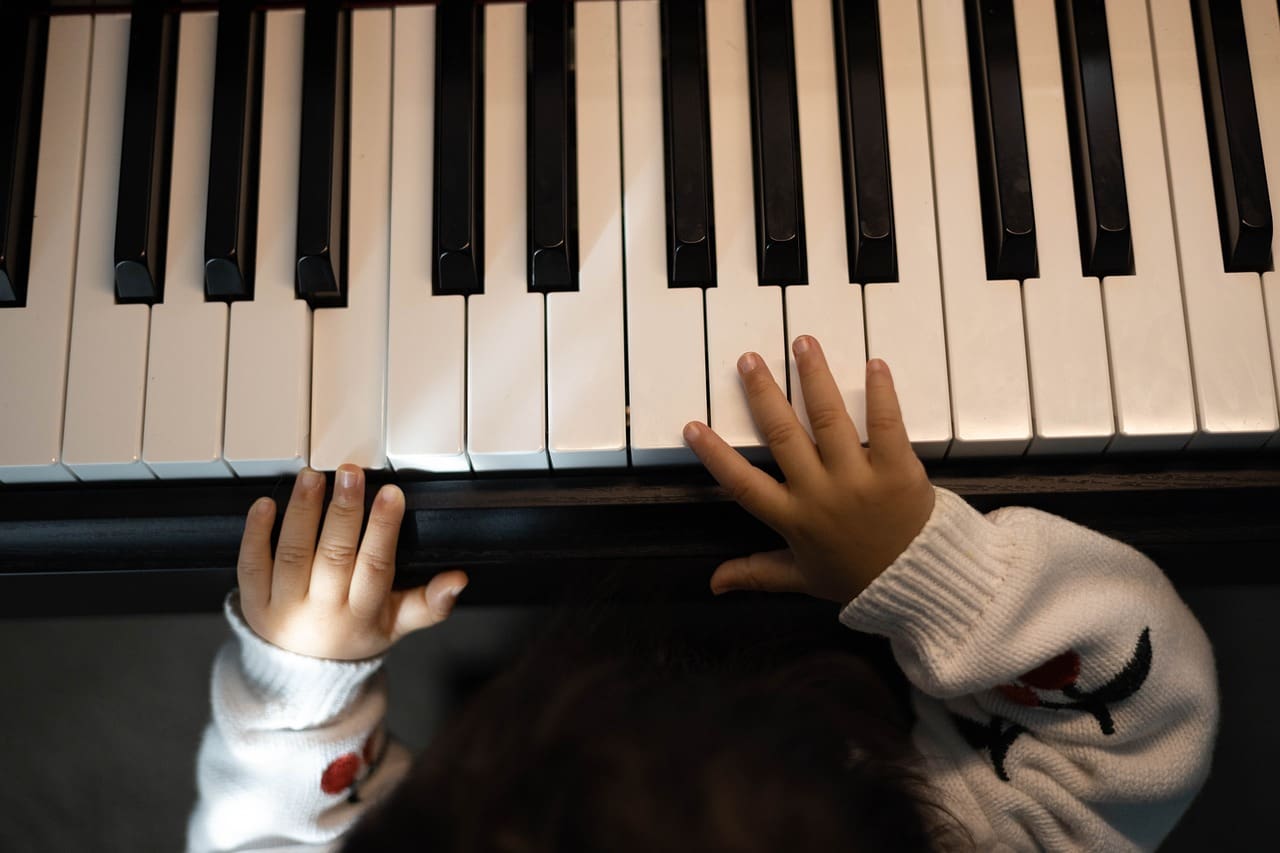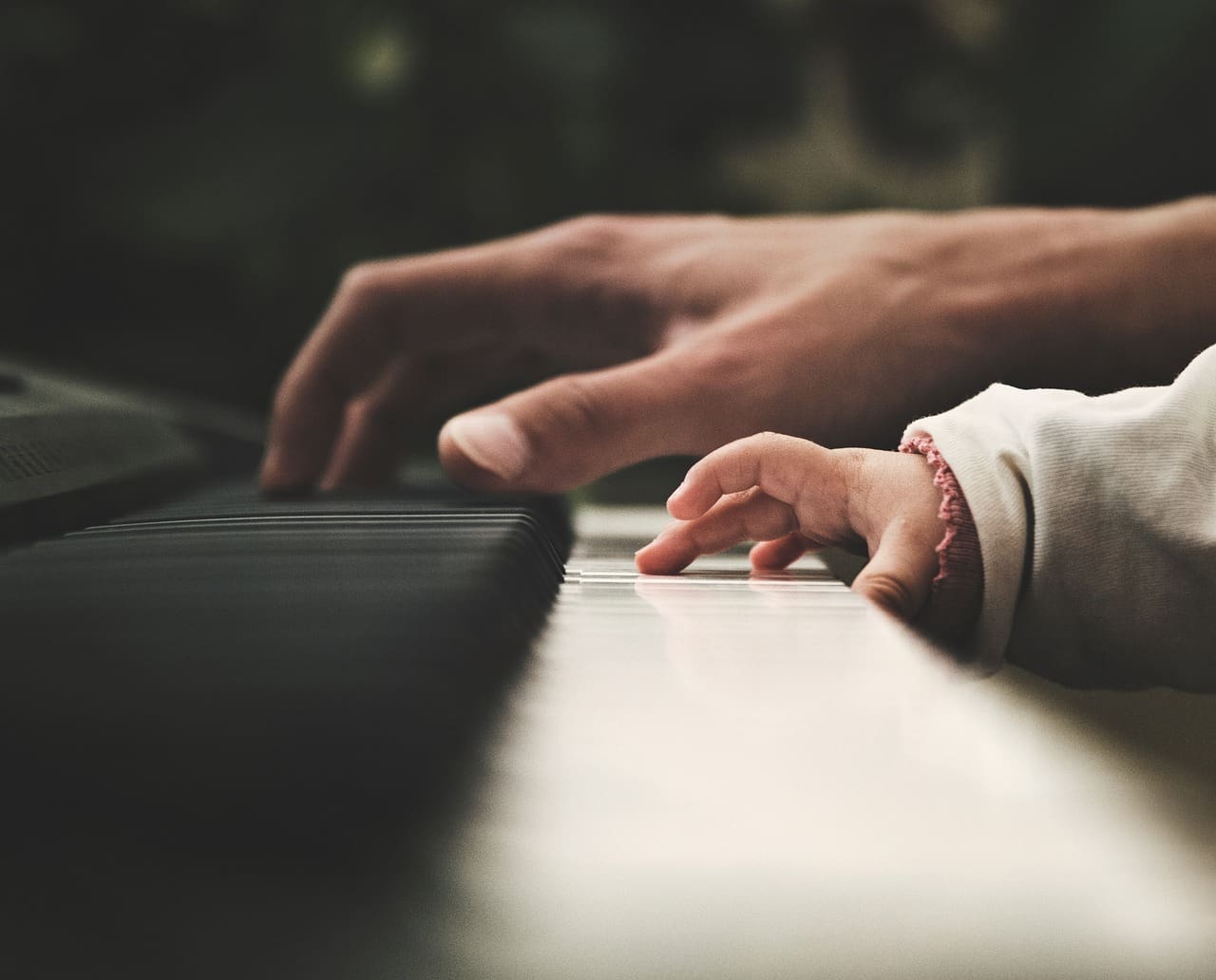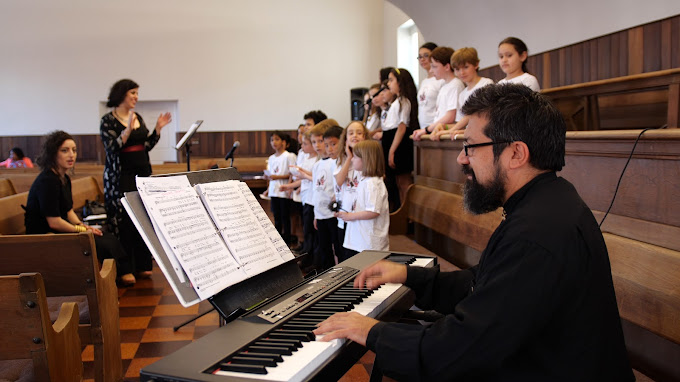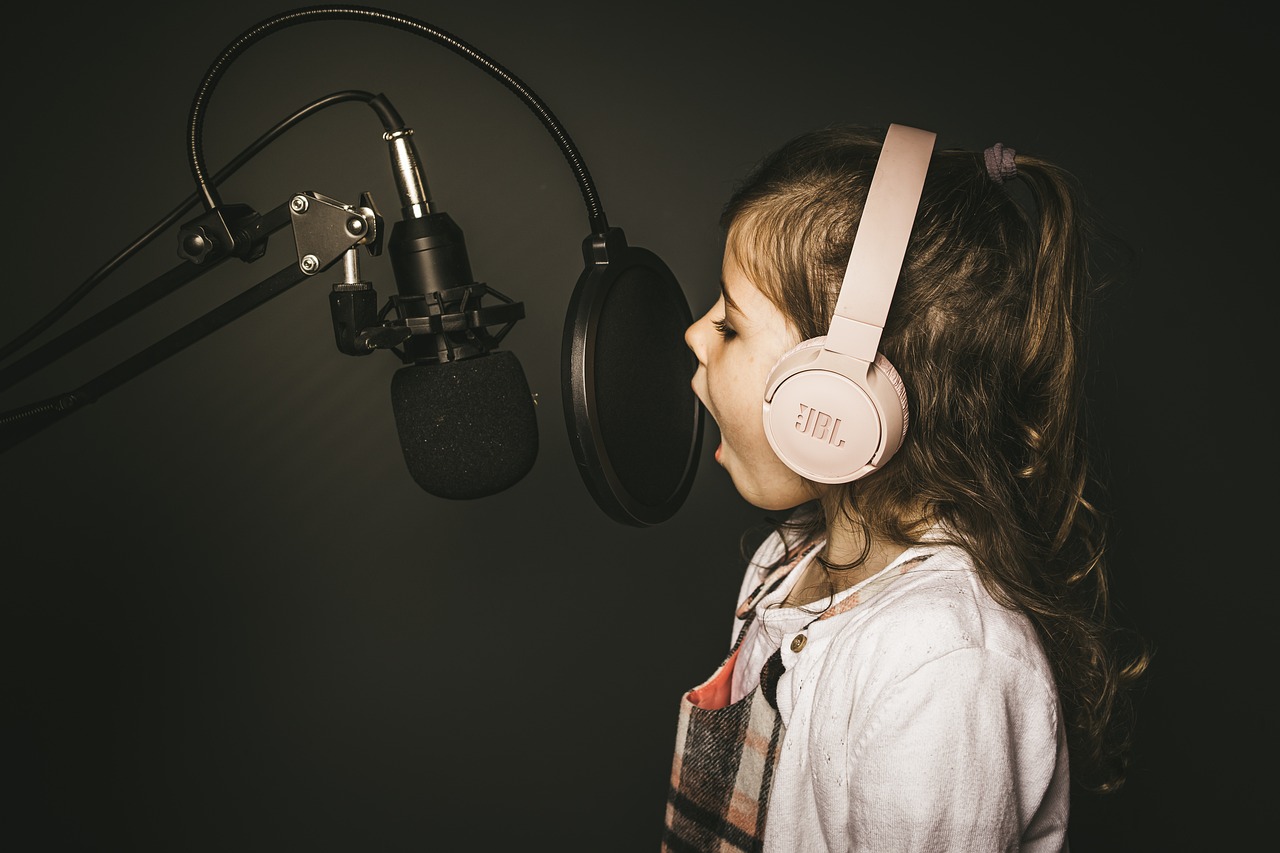Music is an enchanting language that transcends boundaries, ignites creativity, and stirs emotions. It’s a realm where notes and melodies come together to create harmony. Among the various instruments that enable us to venture into this magical world, the piano holds a special place.
The piano offers a solid foundation for understanding music theory, and learning it can be a stepping stone to grasping other instruments. But, when is the right age to embark on this musical journey? When should kids start learning how to play the piano? Let’s dive into the melodious world of piano lessons to find out.
When Should Children Begin Learning Piano?

Learning to play the piano is an enriching experience that transcends age. It’s never too early or too late to start. Be it a curious toddler, an enthusiastic teenager, or an adventurous adult, anyone can learn music, specifically the piano. However, certain factors contribute to the ease and efficiency of learning, which leads us to the question, “What’s the ideal age to start piano lessons?”
Experts in music education suggest that the age bracket of six to nine years is a favorable time for children to start piano lessons. This period aligns well with kids’ cognitive and physical development, making it easier for them to grasp the nuances of piano playing. However, this doesn’t imply a rigid rule. You need to consider certain factors when deciding whether to sign your child up for classes or private lessons.
Assessing Readiness for Piano Lessons
Determining whether a child is ready to start piano lessons involves more than just their age. Several indicators can help parents understand if their child is prepared for this musical journey.
Interest in Playing the Piano
An inherent curiosity or interest in the instrument is a strong sign of readiness. If your child is naturally drawn to the piano, trying to figure out melodies on their own, or shows excitement when others play, they might be ready for formal lessons.
Counting Skills
Can your child count to four? This basic counting ability is crucial for understanding rhythm and timing in music, making it a fundamental prerequisite for starting piano lessons.
Motor Skills and Hand-Eye Coordination
Playing the piano requires fine motor skills and good hand-eye coordination. If your child can comfortably control their fingers and coordinate their hand movements, it’s a positive sign of their readiness.
Ability to Follow Instructions and Focus
Piano lessons, especially for beginners, rely heavily on the ability to follow instructions and maintain focus. If your child can pay attention to a task for extended periods (say, 15 minutes or more), they might be ready for formal piano lessons.
Basic Reading Skills
While not a strict requirement, basic reading skills can enhance your child’s ability to learn piano. They’ll be better equipped to understand music notation and sight-read sheet music.
Daily Practice Time
Regular practice is key to mastering the piano. Ensure that your child has about 30 minutes of daily practice time outside their piano lessons to reinforce what they’ve learned.
The Versatility of The Piano Keyboard
One reason why the piano is an excellent choice for beginners is the simplicity of its keyboard layout. The piano keyboard is composed of white keys and black keys, arranged in a pattern that repeats across the entire length of the keyboard. This pattern makes it easier to understand the relationship between different notes and to learn music theory concepts like scales, chords, and intervals.
The Role of a Piano Teacher

A good piano teacher can make a world of difference in your child’s musical journey. They can guide your child through the basics, like understanding the white key and black key layout, learning how to sight-read, and grasping the concept of time signature. They can also introduce your child to different learning methods tailored to their needs and preferences.
Learning to play the piano involves much more than just hitting the keys. It requires a solid understanding of music theory and the ability to sight-read sheet music. These fundamental skills form the foundation of piano playing and are typically introduced early in the learning process.
The Advantages of Learning Music
Learning music, particularly the piano, offers a plethora of benefits. It enhances cognitive abilities, boosts self-confidence, instills discipline, and fosters creativity. Plus, it’s a fun and engaging activity that provides a sense of accomplishment.
Learning to play the piano is a journey filled with exciting discoveries, challenges, and triumphs. Regardless of the age to start piano lessons, what truly matters is the passion for music and the dedication to learn. With the right guidance and ample practice, anyone can master the art of playing the piano and experience the joy it brings.
So, whether you’re an adult wanting to explore a new hobby or a parent encouraging your child to learn music, remember – it’s never too late or too early to start. The enchanting world of music awaits you!
Master the Piano with Quartertonez
If you have a desire to play piano and want to learn the right way, Quartertonez can help. Our certified instructors can give you the tools you need to reach your goals and ignite your performance. Contact us today to sign up for private or group piano lessons.



